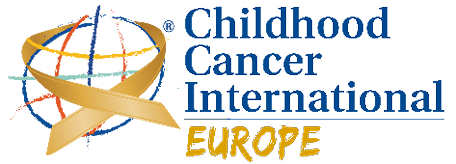Shadow Kids: When a Sibling’s World Turns Upside Down
International Siblings Day, 10th April 2023
Childhood cancer is a devastating diagnosis that affects not only the child with cancer but also their siblings. These brothers and sisters often face unique challenges that can have a significant impact on their emotional well-being and quality of life.

In this article, we will explore some of the challenges that childhood cancer siblings go through, as well as give you tips on how to ease this though period.
1. Emotional Distress
Siblings of children with cancer often experience emotional distress, including depression, anxiety and fear. They may worry about the health and well-being of their sick sibling and feel helpless to do anything to help them. They may also feel guilty for not being able to take away their sibling’s pain.
2. Family Life is Disrupted
Cancer treatment can disrupt family life, as parents may need to devote significant time and attention to their sick child. Siblings may feel neglected or resentful of the time and attention that their sick sibling receives. Additionally, the financial strain of cancer treatment can cause stress and tension within the family.
3. Changed Roles and Responsibilities
Siblings may have to take on new roles and responsibilities when their sibling is diagnosed with cancer. They may need to help care for their sick sibling or take on more household chores and responsibilities. These changes can be overwhelming and stressful, particularly for younger siblings.
4. Social Isolation
Siblings of children with cancer may feel socially isolated from their peers. They may be unable to participate in extracurricular activities or spend time with friends due to the demands of their sibling’s treatment. They may also feel embarrassed or ashamed to talk about their sibling’s illness with their peers, and not know how to deal with their friends’ lack of understanding of cancer.
5. Grief and Loss
Siblings may experience grief and loss when their sibling is diagnosed with cancer. They may mourn the loss of their “normal” family life and the carefree childhood that they once had. They may also fear the loss of their sibling and struggle with the uncertainty of the future.
In conclusion, childhood cancer siblings face unique challenges that can have a significant impact on their emotional well-being and quality of life. It’s important for parents, healthcare professionals, and society as a whole to recognize and address these challenges in order to provide support for siblings of children with cancer.

How to Parent a Sibling?
1. Explain the unknown
Siblings are often scared because they don’t understand this new experience. Be honest and open with your children. If you explain what’s happening, it should lessen fear and confusion. The care team at your pediatric center can help with talking to children. Once you relay the information to your child, provide an age-appropriate description of cancer. Clear up commonly held misconceptions. For example, many kids wrongly think cancer is contagious. Some may have heard that people always die when they have cancer when, in fact, most children (80 percent) survive.
2. Keep life as “normal” as possible
Continue with the routines as they once were, as much as that is possible: continue to go to school, continue to participate in extracurricular activities, remain in the family home etc. If this is not possible, be open with them about it.
3. Make time for siblings
Dedicate a certain amount of time with the siblings. Make sure to have a one-on-one time and read a book. Take a walk or do a fun activity together. This special time can give families much-needed stress relief. Even a 10-minute conversation makes a difference. Siblings may often hear how “strong” or “brave” the child with cancer is. Be sure to verbally recognize the admirable qualities they also display.
4. Relieve guilt
Some siblings may think they caused their brother or sister to get cancer because of something they thought, said, or did. Some may feel guilty that they are healthy while their brother or sister isn’t.
Some ideas that can help include:
- Tell siblings there is nothing anyone can think, say, or do to make someone else get cancer.
- Allow them to help their brother or sister in different ways. They will feel less powerless.
- Show siblings it’s OK to have fun even when their brother or sister is sick.
5. Acknowledge difficult emotions
It’s normal to get angry when a loved one is critically ill. Children can get angry at the cancer itself for letting it happen. They might feel anger at parents’ shifted focus or even towards the sibling for getting sick. Some suggestions to help them:
- Give children and teens a way to express their anger. Encourage your children to draw a picture or write down their feelings in a letter or a journal.
- Provide the sibling a safe, physical outlet for emotions.
- Teach ways to relax such as deep breathing.
- Explain that walking away is better than lashing out.
By providing emotional support, addressing financial needs, and promoting social connections, we can help childhood cancer siblings navigate the challenges they face and thrive in the face of adversity.

[1] St. Jude (2018). Parenting Siblings. Read the article.

